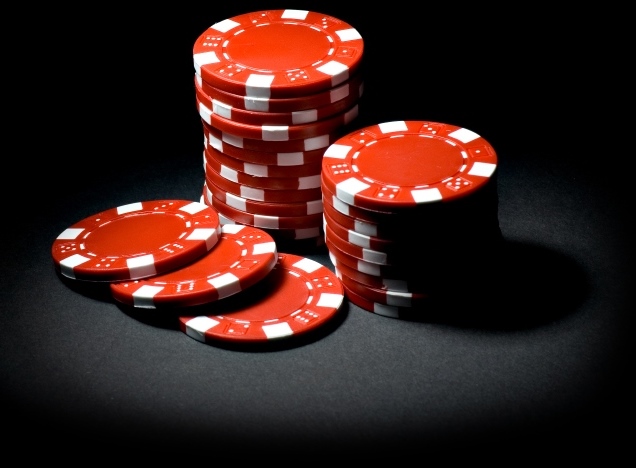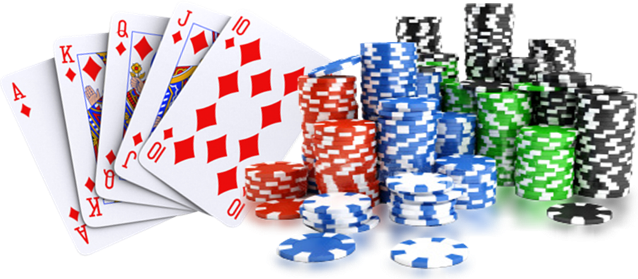- The Reviews
- UNIBET Review 2026
- MANSION Review 2026
- BETSAFE Review 2026
- BWIN Review 2026
- BETSSON Review 2026
- JETBULL Review 2026
- WILLIAM HILL Review 2026
- BET-AT-HOME Review 2026
- ZET Casino Review 2026
- CASINO.com Review 2026
- Mr GREEN Review 2026
- 888 Review 2026
- VEGAS CASINO ONLINE Review 2026
- LAS-VEGAS USA Casino Review 2026
- SUN PALACE Casino Review 2026
- ROYAL ACE Casino Review 2026
- PLANET 7 Casino Review 2026
- CLUB WORLD Casino Review 2026
- SILVER OAK Casino Review 2026
- Free Casino Games
US
- Best Online Casino Games Guide
- Choose Your Best Online Casino
- The Best Casino Games
- Online Card Games
- Best Online Machine Games
- Table Games
- Online Slots
- Complete Modern Online Blackjack Guide
- Free Blackjack Basic Strategy
- Simplified Blackjack Playing Strategy
- How to Play Blackjack Online Like Pros
- Advanced Blackjack Rules and Strategy
- Step-by-Step Blackjack Playing Procedures
- Blackjack Playing Options Guide
- Master Blackjack Card Counting
- Modern Blackjack Card Counters Challenge
- Which is the Best Blackjack Betting System?
- Nine-Count Blackjack Strategy Review
- Blackjack Myths and Errors
- Online Roulette
- Sportsbook
- Online Poker
- Online Video Poker
- Online Scratch Cards
- Online Bingo
- Online Baccarat
- Online Craps
- Asian Casino Games
- Online Keno
- Online Sic Bo
- Casino Bonuses
- Online Casino Reviews
- UNIBET Review, Casino, Sportsbook, Poker & Live Dealers
- BETSAFE Review, Casino, Poker, Live Dealers & Sportsbook
- MANSION Review, Casino, Sportsbook & Live Dealers
- BWIN Review, Sportsbook, Casino, Poker & Live Dealers
- BETSSON Review, Sportsbook, Casino, Live Dealers, Poker
- JETBULL Review -Casino, Sportsbook, Live Dealers
- BET_AT_HOME Review, Sportsbook, Casino, Poker, Live Dealers
- WILLIAM HILL Review -Casino, Sportsbook, Live Dealers, Poker
- ZET Casino Review
- Mr GREEN Review -Casino, Sportsbook & Live Dealers
- CASINO.com Review -Online Casino & Live Dealers
- Las-Vegas USA Casino Review
- Sun Palace Casino Review
- Royal Ace Casino Review
- Planet 7 Casino Review
- Club World Casino Review
- Vegas Casino Online Review
- Silver Oak Casino Review
- Free Casino Games
The Psychology and Chemicals of Gambling
There is an obvious question remaining: why do people like to gamble?
Look around you: we have state lotteries, casinos, sports betting, the stock market, charity bingo …
Let’s investigate what is known.
Psychologists, as well as the casinos themselves, have done vast research on the topic.
The first group because they have to deal with gambling addiction, the casinos because they want to create as much profit as they can regardless of the ethical question involved: should people be subconsciously encouraged into more gambling?
Opinions differ and of course, casinos will not publish the ‘deliberately create a gambling addiction’ strategy they use. Most psychologists claim gambling is so successful because it appeals to a primitive biologic craving for excitement and dealing with risk.
The caveman used to hunt and face the elements of nature on a daily basis. When he returned home from his exciting journey, he had a sense of accomplishment:
He faced risk and if he managed to evaluate the situation successfully the reward was survival for himself and his community.
Biologically there are two major chemicals involved: adrenaline (which is produced when you find yourself dealing with an exciting situation) and serotonin (which is released after facing a challenging situation successfully).
If there is a balance between both, a human has a sense of well being. Humans are sensitive creative beings: playing games and wondering about the best approach, directly appeals to our biology.
But we deal in different ways with the primitive urge to get our literally mind-altering chemicals flowing: some will literally risk there lives in extreme behavior (driving over the speed limit, extreme sports), others do so in a more accepted social way (competing in a business), while gambling introduces an entertainment fashion of dealing with risk.
Of course, human genes differ: one person may find satisfaction in occasionally putting the pedal to the metal while driving, others seek accomplishment in destroying a competitor in a business situation, while a majority will find a small thrill in playing for a dollar on a state lottery.
In general modern man’s life offers a lot of routine behavior: if you are financially dependent chances are high your daily job doesn’t quite offer you the satisfaction you seek. Most occupations demand routine behavior and on most occasions you are only a small part of the chain gang. The biological essential connection between effort and result is increasingly lost in modern society.
For instance, if you would work in a fast-food chain: everything comes in prepared and the cook has no personal accomplishment putting the same exact ingredients together all day.
Wealth is very unevenly spread: while some may gain enormous fortunes by appearing in a Hollywood movie while flashing a toothpaste smile, others literally have to work long hours for small wages which will be just enough to survive and pay the bills.
The difference in income can no longer be conceived to be reasonable. While a nurse working long shifts in a hospital would only receive a very moderate income for doing often unpleasant and psychologically demanding work (being faced with misery all day), a manager on top of a company which produces not as essential services (like the nurse) to the community may make the tenfold.
- Bonus Amount: $3,000 up to $10,000. The best daily bonuses on the internet.
- Games: An incredible number of slots, table games, and video pokers, including HTML5 games.
- Strong security protocols of 128-bit encryption
- Audited and guaranteed fair by TST
- Website: https://www.lasvegasusa.eu/casino/
- Established: 1999
- Software: Real Time Gaming (RTG)
- US and Canadians players supported
- Platforms Supported: Windows, Mac, iPhone, iPad, & Android.
- Type of Casino: Online & Instant or download.
- Free Slots Games: Yes
- Customer Support: 24/7 live chat support, as well as a toll-free phone number: +506-283-0061, and e-mail support
Write your review of Las-Vegas USA Casino
- Website: http://www.royalacecasino.eu
- Casino Type: download client, instant play, and mobile
- Software: Real Time Gaming (RTG)
- Owner: Emoney Processing Casinos LTD
- Established: 2009
- Casino Promotion: 100% Match Deposit Bonus up to $4,000, Daily and Weekly Bonuses
- Coupon Code: CASINO400
- Currencies: US$, Euros, Yen, Pounds, Bitcoin
- Mobile: both desktop and mobile compatibility
- VIP Program: 5 levels Available
- Support: World Class Support, 24/7 live chat & Toll-free phone number for USA and Canada
- Security: 128-bit SSL encryption
- Certified by: CDS (Central Disputes System)
- Languages: English
- License: Costa Rica
Write your review of Royal Ace Casino
- Bonus: 400% up to $10,000.
- Website: https://www.sunpalacecasino.eu/
- Software: Real Time Gaming (RTG)
- Deposit Methods: ClickandBuy, MasterCard, Money Order, Neteller, Visa Electron, instaDebit, Visa, MST Gift Card, Skrill, Bitcoin
- Withdrawal Methods: ACH, Cheque, Money Order, Neteller, Skrill
- Withdrawal Times: EWallets: 2-5 days, Credit / Debit Cards: 10-12 days, Bank Transfers: 7-12 days, Cheques: 21-28 days
- Pending Time: 3-7 days
- Withdrawal Limit: $5,000 per week
- Games: Incredible number of games of all types
- support: 24/7 through live chat, phone, or e-mail
- Support Response Time: 24 hours via email or Instant using Live Chat.
- Encryption: 128-bit SSL
- Audited and found fair by TST
- Languages: English.
- Progressive Jackpots: up to Million-Dollar.
- Restricted Countries: Bosnia, Costa Rica, Malaysia, Morocco, Netherlands, Russia.
Write a review of Sun Palace Casino
- Bonus: 320% Bonus + 45 Free Spins
- Casino Website: https://www.silveroakcasino.com/
- Casino Promotion: 320% Match Deposit Bonus up to $10,000 in 10 first deposits, up to $100 No Deposit Bonus, Weekly and Monthly Cashback, and much more.
- Casino Type: download client, instant play, mobile, and live dealers
- Software: Real Time Gaming (RTG)
- Live Casino: Available Live Dealers Casino
- Owner: Emoney Processing Casinos LTD
- Established: 2009
- Currencies: US$, Euros, Yen, Pounds, Bitcoin
- Mobile: both desktop and mobile compatibility
- VIP Program: 5 levels Available
- Support: World Class Support, 24/7 live chat & Toll-free phone number for USA and Canada
- Security: 128-bit SSL encryption
- Certified by: CDS (Central Disputes System)
- Languages: English
- License: Costa Rica
Write your review of Silver Oak Casino
- Bonus: First Deposit 350% Bonus + 25 Free Spins
- Website: https://www.planet7casino.com/
- Casino Type: download client, instant play, mobile, and live dealers
- Software: Real Time Gaming (RTG)
- Live Casino: Available Live Dealers Casino
- Owner: Emoney Processing Casinos LTD
- Established: 2008
- Casino Promotion: 200% Match Deposit Bonus up to $4,000, and much more.
- Currencies: US$, Euros, Yen, British Pounds, Bitcoin
- Mobile: both desktop and mobile compatibility
- VIP Program: Available
- Support: World Class Support, 24/7 live chat & Toll-free phone number for USA and Canada
- Security: 256-bit SSL encryption
- Certified by: CDS (Central Disputes System)
- Languages: English
- License: Costa Rica, Cyprus, the United Kingdom, and the Netherlands.
Write a review of Planet 7 Casino
- Bonus: Get 300% Match up to $3000 FREE Welcome Bonus
- Website: https://www.clubworldcasinos.com
- Software: Real Time Gaming (RTG)
- Mobile: Android, iPhone, iPad
- Casino Type: Download, Instant Play, Mobile
- Currency: US dollars
- Language: English
- License: Curacao
- Owner: Club World Casinos Group Casinos
- Established: 2005
- Audit: RTP Not publicly audited
- Currency: US dollars
Write a review of Club World Casino
- Bonus: Get 300% Match up to $3000 FREE Welcome Bonus
- Website: https://vegascasinoonline.eu/
- Established: 1999
- Software: Real Time Gaming (RTG)
- Currencies: US$
- US and Canadians players: supported
- Bonus Amount: up to $11,000 Match Bonus
- Platforms Supported: Windows, Mac, iPhone, iPad, & Android.
- Type of Casino: Download & Online Instant Play.
- Free Slots Games: Yes
- Owner: Main Street Vegas Group Casinos
- License: Costa Rica
- US Customer Support: (877) 691-5124
- Canada Customer Support: (888) 387-6717
- Email Address: [email protected]
- Live Chat: Yes
- Response Time: 24 hours via email or Instant using Live Chat.
- Languages: English.
- Progressive Jackpots: up to 1 Million-Dollar.
Write a review of Vegas Casino Online
Gambling to Escape from Daily Life and Reality
This is the second major component to our urge to gamble: to escape from daily life and reality in which things often can become bleak. No working class man could ever gain such fortune, not even in a hard working lifetime as picking the right combination in the state lottery.
The reward for a good gamble offers money and excitement in the process.
Depending on the stake, if a player is on a winning streak one could gain the equivalent of several days pay checks in only a couple of minutes or hours.
And, in contrary to ordinary jobs one doesn’t have to wait a month to get paid: all casino games offer immediate payout.
But, there is a dark side to the pleasure gambling offers: adrenaline narrows the mindset to focus on the present situation. While gambling, you probably won’t be thinking about ordinary life: the only thing which matters is drawing the right card, picking the right numbers, determining the stake, hoping for the best.
While gambling, you are in the core of a biochemical rush. In the process of lengthy sessions most players will loose the connection between the plastic chips and the money they represent.
If you gamble, you are relatively confident you have a chance to win: you’ll determine the strategy, the stake, the risk, all the while hoping you can pull it off. If there is success, serotonin will be released: you went thru an exciting situation and now your brain counteracts with chemicals which make you feel good.
You feel a sense of accomplishment: after all it was you who determined the strategy, placed the bets and your guess turned out right. You felt a buzz of adrenaline (excitement) along the way. By the way, increasing the production of serotonin in the brain which is vital for the well being of humans is also the goal of most anti-depressive pills.
When playing long sessions, the constant interaction between adrenaline and serotonin can make a player feel numb. One will become less aware of the risk, and the human mind goes into a cocoon: the only thing that matters is the outcome. The financial risk for the player increases: one is less inclined to think about the consequences if the gamble turns out wrong.
You might spend more time and money gambling than you planned to. A similar thing happens to the workaholic in daily life: at first he’ll feel good because working restricts him of thinking about things he might be missing in his spare time, but after a while a feeling of numbness ‘burnout’ sets in.
Suddenly what seemed most important in his life ‘working’ is stripped of meaning. It is no different for the addicted or compulsive gambler. After all, let’s face it: watching a ball spin around, pushing a jackpot button, or seeing cards flipped then reshuffled for hours on end can hardly be called a creative way to spend one’s time: the very act is hypnotising because it is repetitive and finally a feeling of numbness and loss of reality will set in.
Especially, if your daily life does not give you satisfaction, finding pleasure in gambling can present a major financial hazard. All commercial gambling games offer the organizer a better mathematical chance to win in the long run. A player, who experienced a good run, may forget that the odds were against him for achieving such a positive result, and when one starts loosing there will be temptation to raise the stakes, chasing losses.
Losses are mathematically inevitable; unless you would play a game in which betting all possible outcomes would give better odds to the player in the long run.
The chemical rush in itself is addictive: when you find pleasure in escaping reality while gambling, you will be more likely to play long sessions and return frequently. The losses which might occur, making you feel bad (no serotonin release) might increase the craving for the excitement and sense of well being you felt before after a successful session. You might take larger risk, playing with higher stakes (more adrenalin) to gain back your losses or win even more (more serotonin). When the vicious circle isn’t stopped in time you might find yourself in serious debt.
Casino Games Blog 2026
The Bitcoin Casino Guide
Why is Gambling so Fun
Nature itself of these chemicals is addictive: after all, when you felt good after experiencing a successful gamble you will feel the urge to repeat the situation. If you lose, this only increases the urge to feel good again.
It might seem very confronting but the regular gambler is no different than a junkie craving for a mind-altering drug. For instance, a smoker knows cigarettes are bad for his health, but if he lights up a cigarette in the short run the reward is a release of the longing for a cigarette. Of course, smoking the cigarette itself will only extend the addiction.
‘Kicking off’ a gambling addiction can result in a serious test for the nerves (lack of chemicals being released), sleep deprivation If you are in a situation in which your financial losses are seriously increasing you should stop gambling and seek professional help. You have just become one of the many victims of the increasingly vicious gambling industry.
Gambling addiction is no different than being addicted to cigarettes, alcohol, tranquilizers, and drugs in general: the essence is a biochemical addiction and the root is most often you simply don’t feel at ease with daily life in general.
We do understand this reflex fully and have no prejudice why many humans do not feel at ease with life and turn to gamble for financial or social reasons or a combination of both.
Some humans are even genetically predetermined to be more sensitive to addiction than others. Others, depending on their life situation will feel a greater urge to escape reality.
If you want to find out if you are a compulsive gambler go the 20 questions test.
Please, seek help for your own benefit and those who surround you: there are many humans just like yourself around.
In any case, the casino industry is a major contributor to gambling addiction because a casino will do everything in its legal power to ensure players would play more, longer, and will deliberately psychologically challenge them into making larger bets. You should be at all times very aware of the psychology casinos will use against the player to make a profit.
The Psychology the Casino Uses Against the Player
These are facts which you’ll find in any psychological scientific research concerning gambling.
- The shorter the time between the bet and the outcome, the more addictive the nature of the game. This is why casinos like to offer fast-paced games: besides the pace generating more income for the casino, the pace also reduces the time for rational thought from the player. The player will find himself in the middle of a chemical rush and chances increase severely the player will lose track of time and the risk involved.
- Casino’s offer an environment in which there is a high stimulus for the senses: jackpots are blinking and buzzing for attention, the interior often has vibrant colors (red for instance is the color which has the highest frequency of stimulating the senses –this is why Ferrari’s are mostly red, or bullfighters use red cloth to excite the bull) and there is lots of sound distraction.
- The bombardment of the senses undermines rational thought because your brain is trying to deal with all the sensory overload input which is going on. Overstimulation will first introduce a sense of excitement, but eventually will lead to a sense of numbness: again the strategy of the casino is without any doubt to deliberately undermine the rational thought of the player.
- Many venues offer alcohol at the tables, some venues will even offer alcoholic drinks for free. Alcohol is a substance that undermines rational thought. As well as it reduces your ability to drive; it also reduces your ‘social’ borders. You might feel overconfident, less restricted and what is very important to the casino: you will be less aware of the risk. To be very clear: you should NEVER drink alcohol before or while you are gambling. In fact, there should be strict government regulations prohibiting serving alcoholic beverages in game rooms to protect the player against him – or herself. This is the case in some European venues and a result of (wise) government legislation.
- The casino taps directly into human desire: for instance, you will find huge publicity announcing the very few jackpot winners, but you’ll never find an advertisement in casinos how much money was lost by the general public. The objective mathematical odds for the player are in a majority of the cases hard or not be found at all in a gaming venue. The government should step in and make it obligatory for each casino to display the mathematical odds beside each game they offer. Information on gambling addiction should be freely and easily available in a gambling venue itself, and the casino should pay for these expenses because after all, they offer the drug which is at hand.
- All casino games are designed as a ritual event. The ball spinning, the final call on the bets, the fluent movement of the dealer, the shuffling of cards, the stacking of chips … Rituals bring to humans a sense of well being and security. The outcome of this ritual is however insecure, that’s the part where the casino cashes in.
Although rituals can be very healthy for human beings, the casino has used the potency of rituals to bring you in a state of mind in which you will be entranced in playing long sessions, will be less thinking about the risk your taking in each and every bet and finally will surrender to the casino by playing without self-control or rational thought.
Was This Helpful?
Recommend us on Facebook










